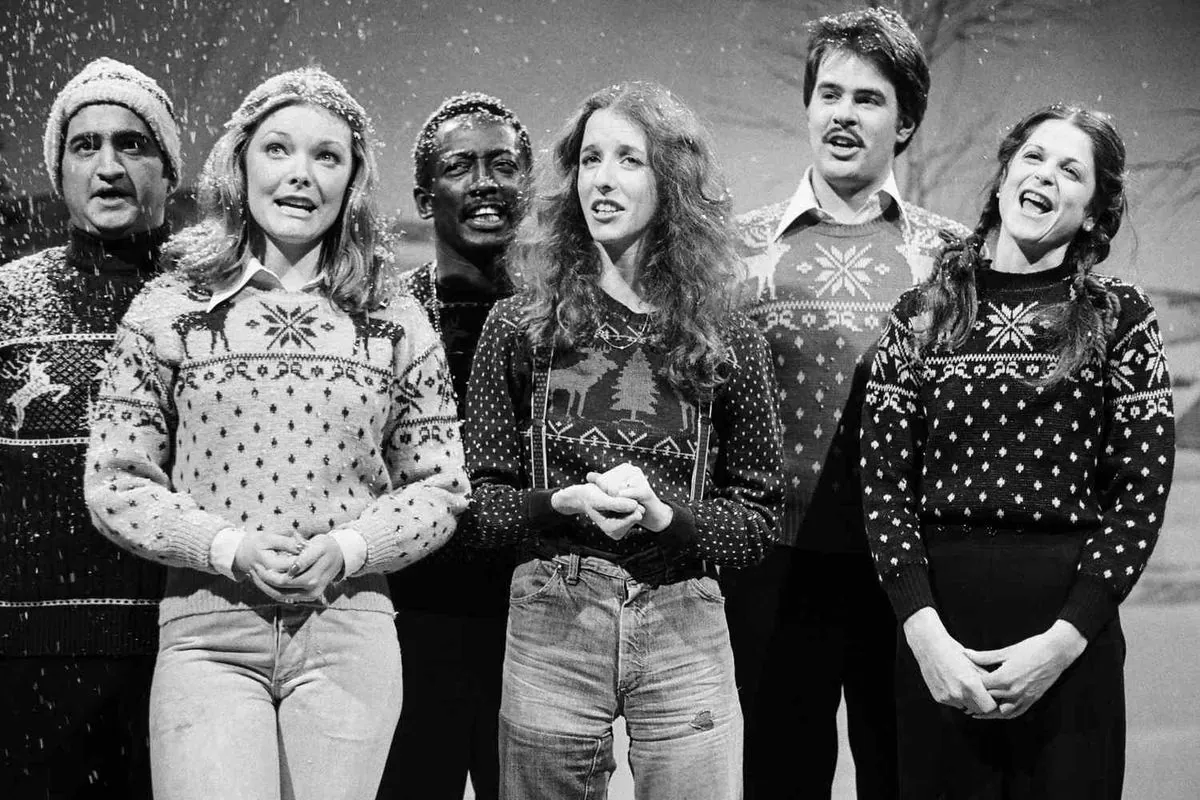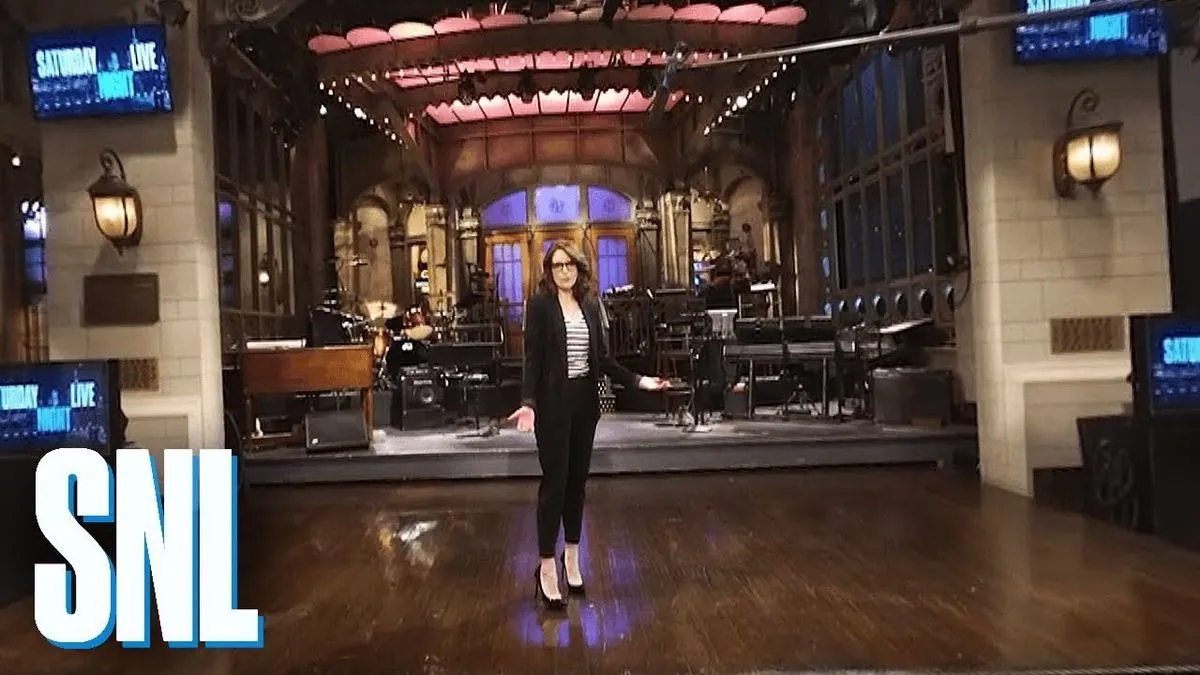SNL at 50: New Film Revisits Show's Chaotic Beginnings
A new movie explores Saturday Night Live's tumultuous start in 1975, offering a nostalgic glimpse into TV history. Meanwhile, the show's 50th season premiere prompts reflection on its enduring legacy and current relevance.

As Saturday Night Live marks its 50th season, a new film titled "Saturday Night" by Jason Reitman offers a glimpse into the show's chaotic beginnings. This cinematic exploration coincides with reflections on the long-running comedy institution's current state and enduring legacy.
Saturday Night Live premiered on October 11, 1975, revolutionizing late-night television. The show, created by Lorne Michaels, has since become a cultural touchstone, launching numerous careers and influencing American popular culture and political discourse for five decades.
The film "Saturday Night" focuses on the 90 minutes leading up to SNL's first broadcast, portraying it as an imminent disaster that few expected to survive beyond its debut. Set in Studio 8H at Rockefeller Center, the movie depicts the frantic preparations, last-minute changes, and the nervous energy that permeated the set.
Gabriel LaBelle portrays a young Lorne Michaels, capturing the producer's determined vision for a show that would speak to "the generation that grew up watching television." The film highlights the risky nature of SNL's live format, a novelty in an era when most television was safely pre-recorded.

The movie's cast includes portrayals of iconic SNL figures such as John Belushi, Chevy Chase, and Gilda Radner. It also sheds light on lesser-known but crucial contributors like Rosie Shuster, one of the show's original writers and Lorne Michaels' ex-wife.
"Saturday Night" serves as a reminder of SNL's innovative spirit and its impact on television comedy. Over its five-decade run, the show has won numerous Emmy Awards, spawned catchphrases, and adapted to changing media landscapes, including the introduction of digital shorts and online content.
While the film offers an entertaining dose of nostalgia, it also prompts reflection on SNL's current relevance. As the show enters its 50th season, some viewers question whether it can recapture the daring, absurdist humor of its earlier years.
"Never mind."
SNL's enduring format, including the cold open, monologue, sketches, musical performances, and Weekend Update, has become a template for late-night comedy. The show's 11:30 PM Eastern Time slot on Saturday nights has been a constant throughout its run, serving as appointment television for generations of viewers.
As "Saturday Night" reminds us of the show's humble and chaotic beginnings, it also underscores SNL's significant role in shaping American comedy and popular culture. Whether SNL can maintain its cultural relevance for another 50 years remains to be seen, but its impact on television history is undeniable.


































